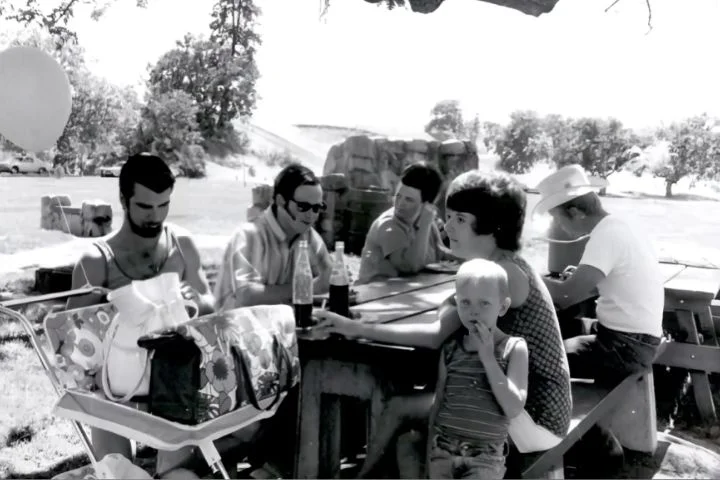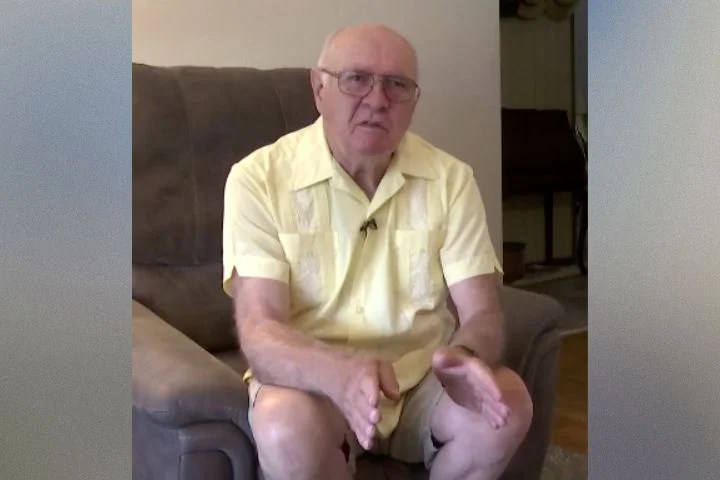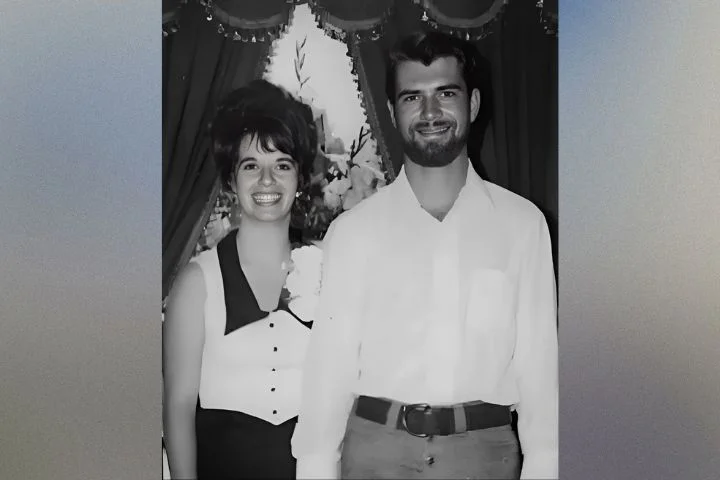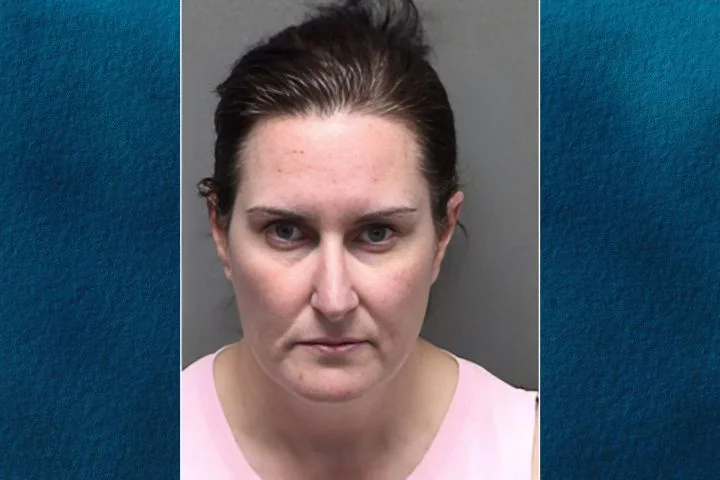28-year-old logging truck driver Richard Cowden and his 22-year-old wife Belinda, their children, David (5 years) and Melissa (5 months), as well as their dog, Droopy, went camping in the Siskiyou Mountains, over the Labor Day weekend, between August 30 and September 1, 1974.
The family headed to an area near Carberry Creek close to Copper in Oregon. The town of Copper no longer exists after it was flooded to create Applegate Lake in 1980.
Seven months later, in April 1975, their bodies were discovered around seven miles (11 km) from their campsite.
The case remains unsolved, with a strange crime scene and has been described as one of the most mysterious mu*rder stories in American history.
The Siskiyou Mountains and the Rogue River–Siskiyou National Forest
The Siskiyou Mountains are a coastal subrange of the Klamath Mountains and are located in the United States in northwestern California and southwestern Oregon. They extend in an arc for approximately 100 miles (160 km) from east of Crescent City, California, northeast along the north side of the Klamath River, into Josephine and Jackson counties in Oregon.
The mountain range forms a barrier between the watersheds of the Klamath River to the south and the Rogue River to the north. Much of it is located within the Rogue River – Siskiyou and Klamath national forests that are famous for their biodiversity. The Pacific Crest Trail (PCT) follows a portion of the ridge of the range.
Applegate Lake and Carberry Creek
In 1978, a dam was built by the Corps of Engineers across the Applegate River 15 miles upstream of the town of Ruch, creating the Applegate Lake. This flooded the town formerly known as Copper. The cemetery in Copper has the grave of Lindsay Applegate, an early explorer after whom the valley was named. In 1848, he led a party of settlers through the Rogue River Valley on the way to mines in California.
Carberry Creek, where the Cowden family was camped, is a stream that empties into Applegate Lake, being named after Jim Carberry, a businessperson in the local mining industry.
The Applegate Lake is a 988-acre (400 ha) reservoir in the Rogue River–Siskiyou National Forest about 27 miles (43 km) southwest of Medford in Oregon.
The United States Congress authorized the construction of the Applegate Dam in 1962 as part of a flood-control project. In 1976, the Corps of Engineers began work on the dam, which was finished in 1980 at a final cost of $96 million. In addition to controlling floods, the dam was intended to store water for irrigation and provide a place for recreation.
Applegate Dam is 1,300 feet (400 m) long and 242 feet (74 m) high, and the lake holds up to 101,400,000 m3 of water.
The Cowden Family’s trip to the Siskiyou Mountains

The Cowdens loved the outdoors but had not planned camping that Labor Day weekend of 1974. Richard had intended to haul a load of gravel for his driveway and spend the weekend getting the job done. Unexpectedly, the truck broke down, so instead, they decided to go to the Siskiyou Mountains for a family trip away.
The Cowden family lived in White City in Oregon and travelled to the campsite in the Siskiyou Mountains in their 1956 Ford pickup truck.
On Sunday, September 1, 1974, Richard and David went to the Copper General Store on foot at approximately 9 am to buy some milk. They left the store and headed back to their campsite. This was the last sighting of the Cowden family.
That evening, Belinda’s mother, who lived less than 1 mile from the campground, expected the family to come over for dinner on their way home. They failed to show, and she went to the campsite to see if there was a problem.
When she arrived, there was no sign of the family, and the truck was parked up with the keys on a picnic table. A plastic dishpan full of cold water lay on the ground, and Belinda’s purse was on the table. A diaper bag and camp stove were set up, and a half-finished carton of milk, which matched that bought at the store earlier in the day, was also present. Richard’s expensive wristwatch and wallet were on the ground. There was also an opened pack of cigarettes, which were the brand that Belinda smoked. The truck appeared untouched and contained their clothing, with only the bathing suits missing.
After waiting for about an hour, Belinda’s mother left the campground to notify the authorities, after which the sheriff, troopers, and the District 3 Office of the Oregon State Police arrived at the scene. Officers searched the area until it grew so dark they couldn’t see a thing.
Lieutenant Mark Kezar, who headed the case, would later state that the investigation had been “delayed for maybe a day” because of the lack of indication that anything violent may have occurred at the campsite. A state trooper, Officer Erickson, recalled: “That camp was spooky; even the milk was still on the table.”
The following morning, on September 2, the Cowden’s pet Basset Hound, Droopy, was found scratching at the front door of the Copper General Store.
The search for the Cowdens
The search for the Cowdens was one of the largest in Oregon history. It included state and local police, Explorer Scouts, the United States Forest Service, the Oregon National Guard, and hundreds of volunteers. The U.S. Forest Service searched 25 miles of roads and trails surrounding the campsite, and helicopters and planes equipped with infrared imaging were flown over the area. Despite this considerable search effort, no sign was found apart from the dog. The official search of the area was suspended on September 7, but friends and relatives of the family spent many weekends and vacation time to continue looking.
The family had a small amount of debt, but they were not behind on any payments, and Richard made more than enough money to support his family. So the authorities quickly realised it was unlikely they had voluntarily disappeared.
It didn’t seem like robbery as the wallet, watches, and other valuables were left behind.
No bodies were found in the creek, which ruled out accidental drowning. What happened to the Cowden family? Lieutenant Kezar and his colleagues were baffled.
The discovery of the Cowden Bodies
Then, seven months after the family vanished, on April 12, 1975, two gold prospectors were hiking through the woods near Carberry Creek, around 7 miles from the Cowden’s campsite. They discovered the decomposing body of an adult male tied to a tree on a steep hillside. In a small cave nearby, the bodies of an adult female, a child, and an infant were discovered. The cave entrance was sealed with rocks to disguise it and hide the bodies. Identification of the bodies as being the Cowden family was made via dental records.
Autopsies revealed that Belinda and 5-year-old David had died as a result of .22 calibre gunshot wounds, and baby Melissa had died from severe head trauma. Medical authorities were unable to determine the cause of Richard Cowden’s death.
Examining the possibility that Richard could have mur*dered his own family, detectives searched the area for a gun or other weapon. If Richard were responsible for the deaths of his family and his suicide, then some firearm would still be around. But, no gun was ever found, and the only evidence was a single bullet belonging to a Marlon-manufactured rifle.
Lt. Mark Kezar said afterwards, “The whole nature of the thing smacks of a weirdo,” adding that the police knew a lot they didn’t feel free to discuss at that point.
The authorities believed that Richard and David returned to the camp after their trip to the store, and the family went swimming in adjacent Carberry Creek later that morning. A short time later, probably before noon, the family was abducted at gunpoint, most likely by someone they did not know. Kezar hypothesized that they were perhaps driven some distance away, forced up the steep slope where they were found, and at least three of them were shot.
One family from Los Angeles, California, had arrived at the campground at 5 pm on September 1, and whilst walking in the park that evening, they witnessed two men and a woman parking nearby in a pickup truck. They said, “They acted like they were waiting for us to leave, and frankly, they made us nervous, so we moved on.”
Based on the location of Belinda and the children’s bodies inside the cave, Lieutenant Kezar suspected that the person responsible was a resident who knew the area and was aware of the cave’s location. After the family’s remains were recovered, a resident of Grants Pass who had volunteered in the search told police that he had searched the cave where Belinda and the children’s bodies were found in September 1974 and that they were not there at that time. To confirm the story, police had the man take them to the cave he had searched; it was the same cave where the bodies had been discovered.
Richard Davis interview

In August 2020, Former Oregon State Police detective Richard Davis was interviewed given his involvement in the case.
Multiple agencies, including OSP, the Jackson County Sheriff’s Office, and Central Point Police, searched for months on end ‘chasing their tails,’ as Davis calls it. “He had two recruits come in, and you go up on the Applegate and look for buzzards because buzzards will lead us to the body. This was in January. Buzzards are migratory birds, there hadn’t been one in the Rogue Valley, Applegate Valley since early November,” said Davis.
He said a few early suspects were quickly eliminated. With no new leads, the case went cold for months, and officers began to lose hope. “We got some of the strangest, most bizarre calls, tips where they were and what they were doing… they were seen in Seattle, they were seen in San Francisco. They weren’t,” he said.
It wasn’t until seven months later, when Davis took over the case as lead detective, that he says two campers from Washington made a gruesome discovery. “They started up a little game trail from the level camp spot up the hill… and there was a skull,” said Davis. “Right then, I mobilized everyone I can get. I need help. I’m one man, I can’t search the forest. I need help,” he said.
Davis says Richard Cowden’s skull was found roughly 7 miles from the campsite. He had been tied to a tree.
About 100 feet away, under a rock on the hillside was Richard’s wife, son, and baby. “The boy had been shot by that 22 rifle. I don’t remember how Belinda was k*illed. The baby had had its head bashed in blunt force trauma,” said Davis.
Davis says they bagged everything up, down to the mineral soil. However, evidence was scarce after more than half a year of exposure to the elements.
“During the actual search and recovery for bones and stuff, the men became kind of giddy. But once we got back into the vehicles, it became very somber. Reality sets in. My god, what have I been doing? How could I have been giddy up there on the hillside when this family’s been murd*ered, brutally mur*dered,” he said.
All that was left, Davis says, was a single bullet belonging to a Marlon-manufactured rifle. “We’re looking for anybody that had purchased that weapon that could have fired that shot. A weapon that could have fired that shot.”
Suspects in the Cowden kil*lings

Dwain Lee Little has been implicated but never charged with the Cowden mur*ders.
He had been paroled from the Oregon State Penitentiary in Salem on May 24, 1974, three months before the Cowdens’ disappearances. On November 2, 1964, he raped and mur*dered teenager Orla Fay Fipps, then aged only 15 years of age. State police were able to determine that Little had been in Copper over the Labor Day weekend at the approximate time the Cowden family were ki*lled.
Little’s girlfriend told law enforcement that she had seen him with a .22 calibre gun during Christmas 1974, and on January 12, 1975, his parole was revoked after she informed the police. Little was paroled again on April 26, 1977, and on June 2, 1980, he picked up a pregnant twenty-three-year-old named Margie Hunter, whose car had broken down near Portland, Oregon. He sexually assaulted and beat her, but she survived. Little was charged and convicted of attempted homicide and sentenced to three consecutive life sentences. He was never cooperative with mental health treatment and refused to discuss any of the mu*rders he was accused of.
Police believed that the two men and woman in a truck reported by the Los Angeles family at the campground were, in fact, Little and his parents, as their truck matched the description that was provided at the time. Little and his parents denied any knowledge of the Cowdens’ disappearances; however, a miner who owned a cabin nearby claimed that he had stopped by on Monday, September 2, 1974, and signed a guestbook he kept for visitors.
Floyd Forsberg, an inmate who at one time shared a cell with Little, would later claim that Little confessed to the Cowdens’ mur*ders.
Richard Cowden’s father committed suicide a few months after the bodies were discovered, but he was cleared of any involvement.
Over four decades on, the facts behind the Cowdens’ mur*ders remain unknown. It was foul play, but was it Dwain Little or someone else? A brutal mu*rder in America’s wilderness.






